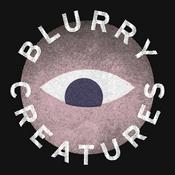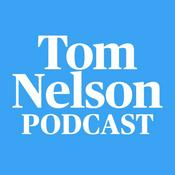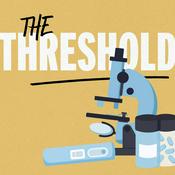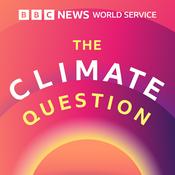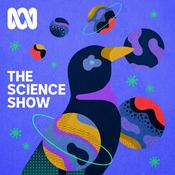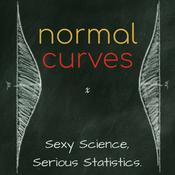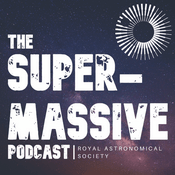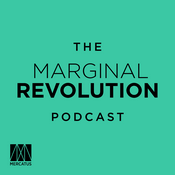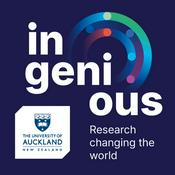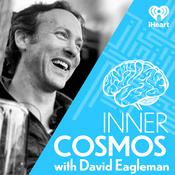627 episodes

Jürgen Zimmerer, "Memory Wars: New German Historical Consciousness" (Reclam Verlag, 2023)
03/1/2026 | 1h 1 mins.
Erinnerungskämpfe: Neues deutsches Geschichtsbewusstsein (Ditzingen: Reclam, 2023) is a new, provocative volume on German memory cultures and politics edited by Jürgen Zimmerer. What can be loosely translated as Memory Wars: New German Historical Consciousness is a collection of chapters that lay bare a mosaic of a diverse German memory landscape as well as the major debates and turning points by which it is continuously shaped. It is subdivided in five sections together encompassing 23 chapters and covers German Empire and colonialism, National Socialism and the Second World War, the Holocaust and multidirectional memory, East/West Germany and reunification, and, finally, today's Berlin Republic. This volume gains in relevance by the day and shows how the German past(s) and the way they are debated, commemorated, and weaponized today and by whom has real-life, if not existential, consequences. It is far from an exclusively German matter. Memory Wars: New German Historical Consciousness is of interest for all those who critically engage with the instrumentalization of memory in ongoing cultural wars in other national contexts as well, such as the heated debates and rightwing attacks in the United States and elsewhere surrounding fields such as Critical Race Theory, Gender or Queer Studies that emerge out of the White Supremacist backlash and the concomitant increase in racism, trans- and homophobia. Jürgen Zimmerer is Professor of Global History and the head of the research center “Hamburg’s (post-)colonial legacy” at the University of Hamburg. He served as the founding president of the International Network of Genocide Scholars for twelve years until 2017 and was the Senior Editor of the Journal of Genocide from 2005 to 2011. His research interests include German Colonialism, Comparative Genocide studies, Colonialism and the Holocaust, and Environmental Violence and Genocide and, for the specific German context, his work has been crucial in revealing the deep connections between the Holocaust and German colonialism – up until that point two German histories of violence hegemonically thought of as ontologically different, if thought together at all. His publications include German Rule, African Subjects: State Aspirations and the Reality of Power in Colonial Namibia (2021) and From Windhoek to Auschwitz? Reflections on the Relationship between Colonialism and National Socialism forthcoming in English in 2024. Miriam Chorley-Schulz is an Assistant Professor and Mokin Fellow of Holocaust Studies at the University of Oregon and the co-founder of the EU-funded project We Refugees. Digital Archive on Refugeedom, Past and Present. She holds a Ph.D. in Yiddish Studies from Columbia University and is the author of Der Beginn des Untergangs: Die Zerstörung der jüdischen Gemeinden in Polen und das Vermächtnis des Wilnaer Komitees (Berlin: Metropol, 2016) which was awarded the “Hosenfeld/Szpilman Memorial Award.” Henriette Sölter is a communications and PR consultant with expertise on the interface of contemporary art and culture, international perennial formats, and strategic institutional positioning. She has worked with institutions such as documenta, Berlin Biennale for Contemporary Art, and Haus der Kulturen der Welt (HKW), is a member of Bergen Assembly's executive board and is part of the New Patrons network for citizen-commissioned art. Learn more about your ad choices. Visit megaphone.fm/adchoices Support our show by becoming a premium member! https://newbooksnetwork.supportingcast.fm/genocide-studies

Lisa Silverman, "The Postwar Antisemite: Culture and Complicity After the Holocaust" (Oxford UP, 2025)
28/12/2025 | 1h 9 mins.
In his influential Anti-Semite and Jew, French philosopher Jean-Paul Sartre observed "If the Jew did not exist, the anti-Semite would invent him." In doing so he articulated the figure of an Antisemite responsible for imagining the Jew in a formulation that has lasted for decades. This figure became an indispensable trope in the period immediately after the war. It enabled Germans and Austrians to navigate a radically changed political and cultural landscape and reestablish lives upended by war by denying complicity in perpetuating antisemitic ideology. The deeply ingrained cultural practices that formed the basis for age-old prejudices against Jews persisted via coded references, taking new forms, and providing fertile ground for explicit eruptions. Decades before the Nazi persecution of the Jews would emerge as a master moral paradigm of evil in popular culture, the constructed Antisemite became part of a forceful narrative structure that allowed stereotypes about Jews to persist, even as explicit antisemitism became taboo. Lisa Silverman examines the crucial development and implications of the figural Antisemite in a range of trials, films, and texts during the first years after the end of the Second World War. She argues that, in their economically shattered, emotionally exhausted, and culturally impoverished postwar world, Austrians, Germans, and others used the Antisemite as a way to come to terms with their altered circumstances and to shape new national self-understandings. A readily recognizable and easily adaptable figure of evil, the Antisemite loomed large as a powerful and persistent trope in a wide range of artistic and cultural narratives. As a figure onto which to project or imagine as a source of the hatred of Jews, the Antisemite allowed audiences to avoid facing the implications of crimes committed by the Nazis and their accomplices and to deny the endurance of widespread and often coded antisemitic prejudices. In postwar Europe, where everyone looked to blame others for the murder and dispossession of the Jewish population, the authority to define the Antisemite as a receptacle for explicit Jew-hatred became a powerful force. As The Postwar Antisemite argues, antisemitism as a hidden code gained new force, packing stronger, more effective punches and affording its users more power. This era is critical to understanding ongoing struggles over the authority to set the parameters of antisemitism and the power and persistence of this hatred in society. Paul Lerner is Chair of the History Department at the University of Southern California where he directs the Max Kade Institute for Austrian-German-Swiss Studies. Learn more about your ad choices. Visit megaphone.fm/adchoices Support our show by becoming a premium member! https://newbooksnetwork.supportingcast.fm/genocide-studies

Anna Hájková, "People without History are Dust: Queer Desire in the Holocaust" (U Toronto Press, 2025)
26/12/2025 | 33 mins.
Queerness remains one of the most stigmatized and overlooked aspects of Holocaust history, often erased due to the lingering homophobia of survivors. People Without History Are Dust: Queer Desire in the Holocaust (U Toronto Press, 2025) challenges this silence, weaving together compelling stories of German, Dutch, Czech, and Polish Jewish Holocaust victims and survivors – including Anne Frank, Molly Applebaum, Margot Heuman, and Gad Beck – whose experiences help illuminate the hidden history of queerness in a time of genocide. Drawing on extensive archival research, this groundbreaking book uncovers the lives of those who were doubly marginalized, not only persecuted as Jews but also as queer individuals. In doing so, it confronts the ways in which history has excluded or minimized their experiences, urging us to question normative accounts of the Holocaust. By shedding light on these long-overlooked stories, People Without History Are Dust deepens our understanding of identity, survival, and memory, reminding us why an inclusive and complex approach to history is essential – not just for the sake of the past, but in service to the present and the future as well. Learn more about your ad choices. Visit megaphone.fm/adchoices Support our show by becoming a premium member! https://newbooksnetwork.supportingcast.fm/genocide-studies

Martin Herskovitz, "Son of the Shoah: Poems from a Second-Generation Holocaust Survivor" (McFarland, 2025)
26/12/2025 | 33 mins.
As a third generation Holocaust survivor, this was an important conversation with a second generation survivor. Marty has been conducting workshops on writing memory for quite a while and that's where we met - in his workshops with Jewish Ethiopians in Israel. Son of the Shoah: Poems from a Second-Generation Holocaust Survivor is his emotional reckoning with his parents and the world as being born into a world of pain and distance. At times I saw my own parents in the discussion and at times I would hear my friend whose family is descended from Jews tortured in the Inquisitions. This was an intimate and powerful discussion which will help the field of memory and Holocaust studies. Learn more about your ad choices. Visit megaphone.fm/adchoices Support our show by becoming a premium member! https://newbooksnetwork.supportingcast.fm/genocide-studies

Mark Celinscak and Mehnaz Afridi, eds., "Global Approaches to the Holocaust: Memory, History and Representation" (U Nebraska Press, 2025)
16/12/2025 | 1h 2 mins.
The field of contemporary Holocaust studies is increasingly international in perspective. These approaches do not detach themselves from European history; rather, they incorporate perspectives and voices not always considered in more traditional Holocaust studies. The contributors to Global Approaches to the Holocaust: Memory, History and Representation (U Nebraska Press, 2025) take such an approach as they examine the Holocaust, adding to the historical and memorial reach of the subject through an international range of voices. Global Approaches to the Holocaust asks: What happens when scholars shift their focus from an exclusively European perspective of the Holocaust? What new insights are gained from exploring the impact of the Holocaust from outside the European milieu? How do countries that were not directly affected by Nazi policies of occupation and extermination remember the Holocaust? What does an expansive approach to the Holocaust entail? With essays about North and South Africa, Mauritius, Japan, Argentina, Mexico, Chile, the Philippines, the United States, Australia, Canada, India, Pakistan, Palestine, Colombia, New Zealand, and more, Global Approaches to the Holocaust seeks to create a critical voice in Holocaust studies that encompasses not only Europe but also Asia, Africa, South and North America, Australia, and the Middle East. Learn more about your ad choices. Visit megaphone.fm/adchoices Support our show by becoming a premium member! https://newbooksnetwork.supportingcast.fm/genocide-studies
More Science podcasts
Trending Science podcasts
About New Books in Genocide Studies
Listen to New Books in Genocide Studies, Boring History for Sleep and many other podcasts from around the world with the radio.net app
Get the free radio.net app
- Stations and podcasts to bookmark
- Stream via Wi-Fi or Bluetooth
- Supports Carplay & Android Auto
- Many other app features
Get the free radio.net app
- Stations and podcasts to bookmark
- Stream via Wi-Fi or Bluetooth
- Supports Carplay & Android Auto
- Many other app features

New Books in Genocide Studies
download the app,
start listening.











